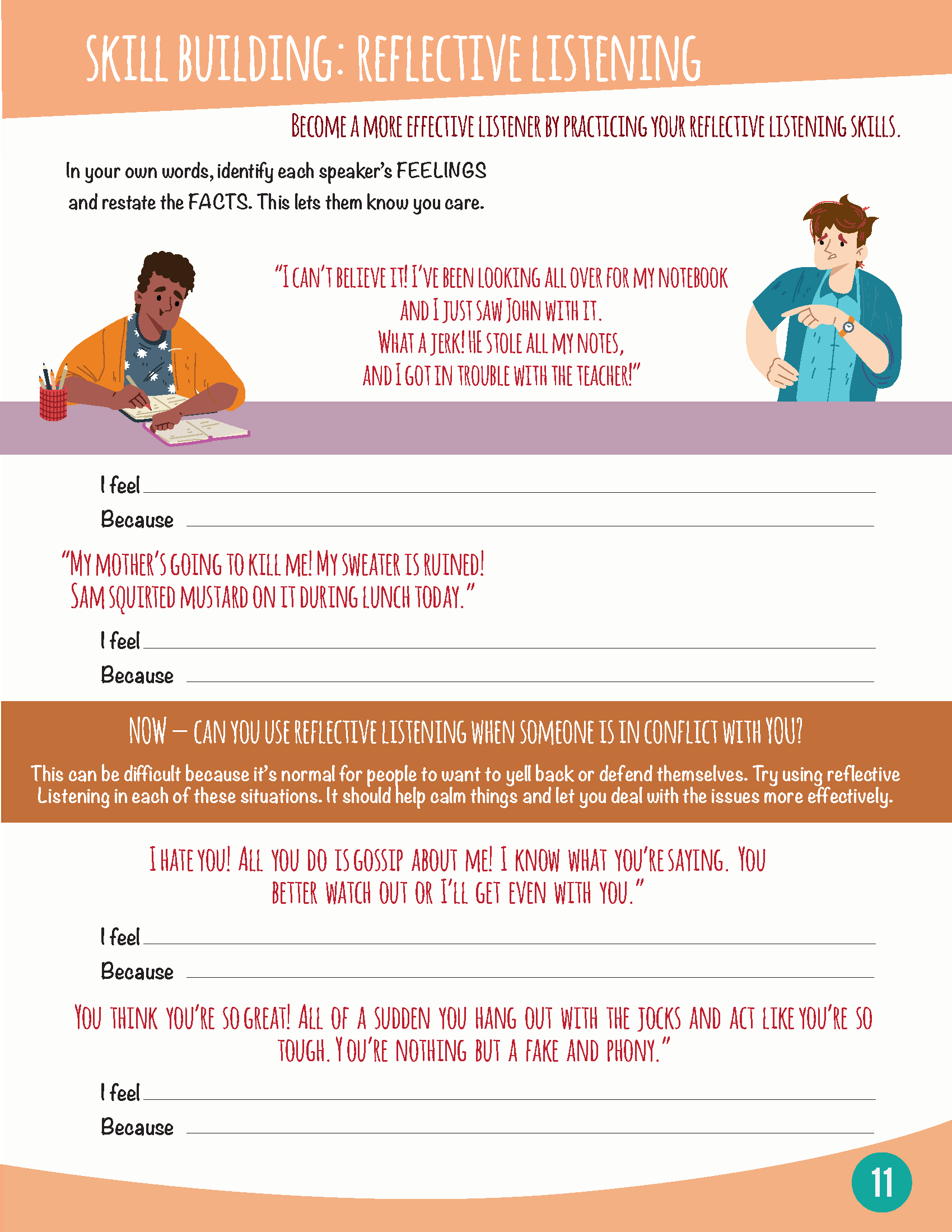
Skill Building: Reflective Listening
Become a more effective listener by practicing your reflective listening skills.
In your own words, identify each speaker’s feelings and restate the facts.
This lets them know you care.
I can’t believe it!
I’ve been looking all over for my notebook and I just saw John with it.
What a jerk! he stole all my notes, and I got in trouble with the teacher!”
I feel, (blank)
Because, (blank)
My mother’s going to kill me!
My sweater is ruined!
Sam squirted mustard on it during lunch today.
I feel, (blank)
Because, (blank)
NOW — can you use reflective listening when someone is in conflict with you?
It can be difficult because it’s normal for people to want ll back or defend themselves.
Try using reflective Listening in each of these situations.
It should help calm things and let you deal with the issues more effectively.
I hate you!
All you do is gossip about me!
I know what you’re saying.
You better watch out or I’ll get even with you.
I feel, (blank)
Because, (blank)
You think you’re so great!
All of a sudden you hang out with the jocks and act like you’re so tough.
You’re nothing but a fake and phony.
I feel, (blank)
Because, (blank)
Lesson Progress
- Intro to Conflict Resolution
- How People Behave in Conflict Situations
- Other Characteristics of Aggressive People
- The ABC'S of Conflict Resolution
- Other Important Tips
- Skill Building "I" Statements
- Skill Building: Reflective Listening
- More Pointers on Talking and Listening
- Listening In Conflict Situations
- Practice Skill Building “I” Statements
- Skill Building: Reflective Listening